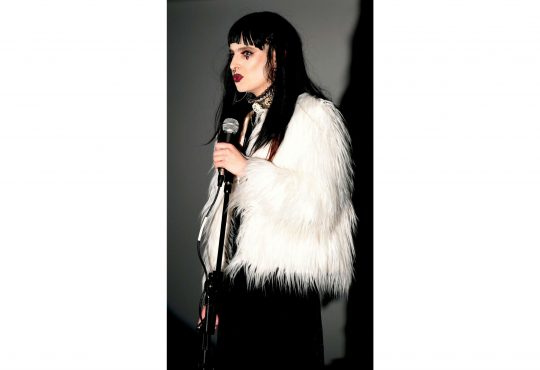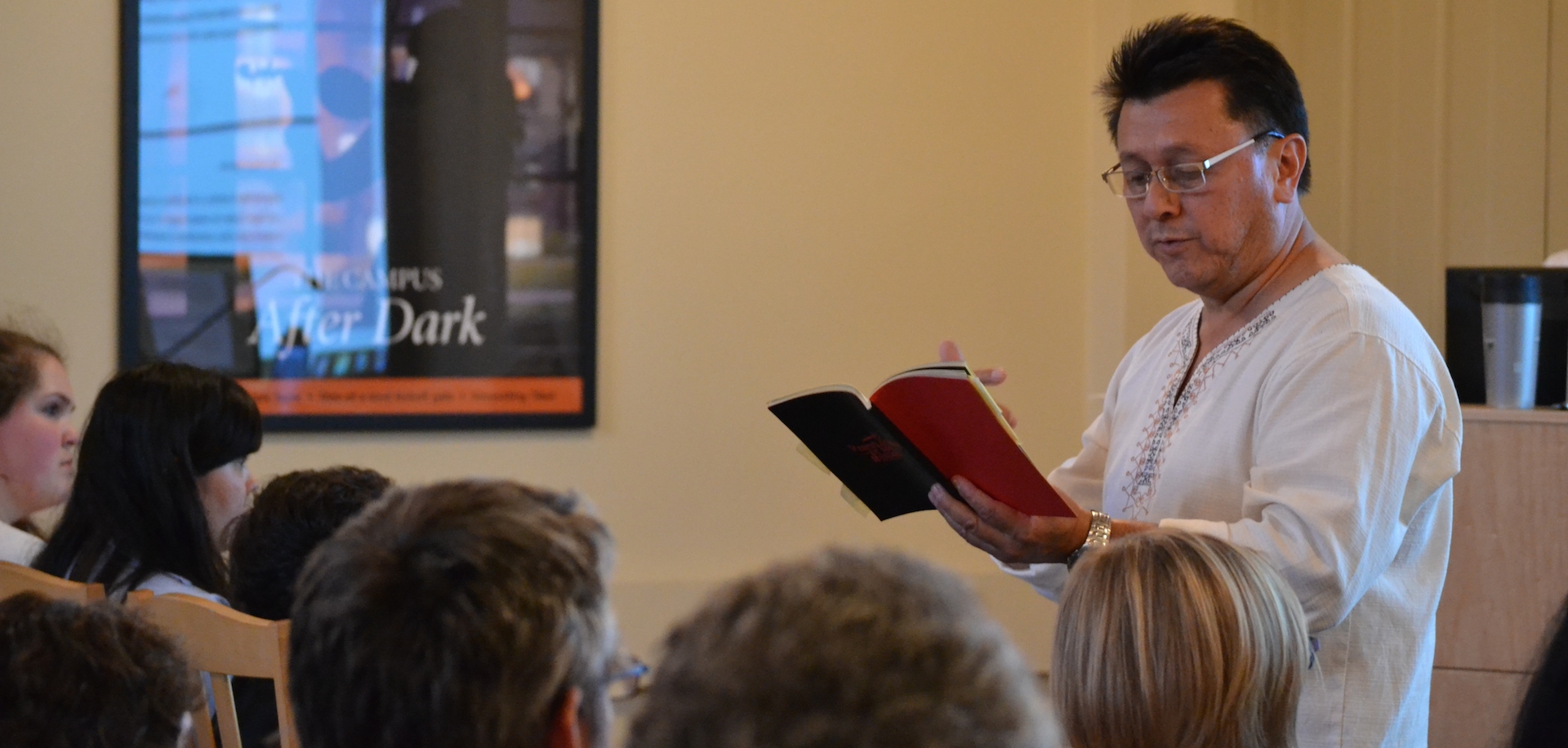
“Who Killed Cock Robin? I, said the sparrow, with my bow and arrow, I killed Cock Robin!
“Who saw him die? I, said the fly, with my little eye, I saw him die.”
These are the opening lines of the 15th-century English nursery rhyme, “Who Killed Cock Robin.” With its strong marching cadence and tight internal rhymes, the song hits the ears with an electric satisfaction. This is poetry at its finest. And according to Judith Adams, we are all born with a deep and primal love for it.
On Thursday, Nov. 2, Humanities Washington sponsored a lecture at the Tacoma Art Museum (TAM) by local Washington poet Judith Adams about how to fall back in love with the written word. According to Adams, we all grow up with a natural affinity for language and sound.
“Children have an appetite for story, humor, trickery and rhyming cadence,” Adams explained. This is best demonstrated through the simple pleasure of the humble nursery rhyme.
“Through nursery rhymes, children experience the vicissitudes of life,” she said. Some offer coping mechanisms for real-world issues. The story of “Who Killed Cock Robin,” for example, in addition to being a catchy rhyme, also serves as “a community story about the reality of death,” Adams said.
Even seemingly nonsensical rhymes, Adams said, serve an important purpose in a child’s development.
“So many nursery rhymes have a kind of intrinsic wisdom that really meet children at the developmental stage that they’re in,” she said.
Adams told a story of an experience she had several years ago, assessing children for the first grade, where the effect of poetry, particularly folk songs, had an observable effect on a child’s psychology.
She recalled a little girl adopted from Russia. While her assessment was nearly perfect, teachers were concerned as she was not participating in class and her work was far below satisfactory: “I didn’t know what to do,” Adams said. “Then one night I woke up and thought maybe she just needs Russian folk songs and rhymes.”
She advised the child’s parents to play their daughter Russian folk songs for about a month and see if they noticed any changes. A few weeks later, Adams received a call from the child’s teacher, telling her that the girl’s attitude had completely turned around.
“It made me realize how profoundly we are influenced by the place and culture of our birth,” Adams said. “We are influenced by the sounds we are surrounded by at birth, the intonation of our native language, bird-songs, sounds of the cities and rivers and folk songs. … A sense of place gives us a sense of belonging.”
It is only later, under the crushing weight of analytical rigor, that this initial passion for language is eroded. Adams went on to explain how many people’s disdain for poetry comes not from the works themselves but how they are presented in schools.
“All we remember are the excruciating classes of going through poems line by line trying to figure out the meaning. If we were to allow students to simply enjoy the sounds of the words, one in the wake of another, the meaning would emerge.”
Adams remembered experiencing this herself, when she was a child growing up in England and was required to memorize a poem by Walter de la Mare. “As we recited the poem, I can still remember how visceral it felt,” she said. “The sound of the words vibrated inside me.”
For Adams, the act of reading a poem is fundamentally an affective experience. A poem is not a question with a single answer or a problem to be solved. Rather, it is an active and creative process, whereby the reader’s response contributes just as much to the creation of meaning as the actual author.
Quoting Adrian Riche, Adams told the crowd, “A poem isn’t complete until there is a reader at the other end. It can’t just be produced; it also has to be received. And so, yes, I feel that poems are being completed in so many different ways by so many different minds and consciousnesses.”
Once we make this perceptual shift, poetry has the power to imbue even the most quotidian of objects with a kind of divine significance, bringing us “to the essence of life,” such that we can no longer take anything for granted.
After the lecture, many audience members found themselves walking away with a new perspective on poetry. Puget Sound senior Morgan Ardwan, for example, found herself deeply moved by Judith’s performance. “I was surprised with how engaged I ended up being,” she said. “I want to connect more with poetry and folk songs from California or the United States.”
Angie Cookston, another Puget Sound senior, also spoke to how hearing poetry aloud gave her a newfound appreciation for the art form. “I loved the way she read the poems; it sounded like music, just her intonation and inflection was really beautiful.”
Though both the reading and writing of poetry is often considered a solitary endeavor, Judith Adam’s lecture at the TAM reminded those in attendance of the true roots of poetry, a communal experience, wherein language connects to the heart true wonder of simply being.



